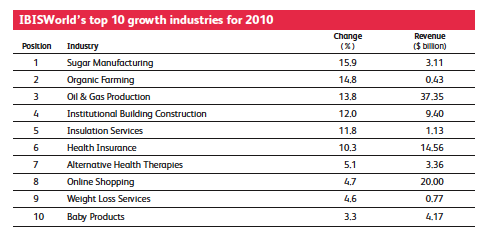If there’s one thing I’ve found out recently it’s that people love predictions. Why this is the case I’m not sure. I think it’s partly because bad predictions can be really funny (i.e. with the passage of time they turn out to be hopelessly wrong) or because they are highly provocative (how could anyone intelligent possibly think such a thing?).
What I especially love about bad predictions and prophets of doom is that they both highlight the danger of extrapolating from a single trend or from seeing the world with a single lens. In other words they use critically false assumptions. They assume that things will always go on as they are or fail to foresee the impact of new events or innovations. There is also the problem of groupthink. As the writer JG Ballard once said: “If enough people predict something it won’t happen.”
There are obviously countless lists of failed predictions and especially regrettable quotations but most are just a jumble. A few people have grouped predictions by industry, which is quite interesting, but I’ve had a better idea that I posted at Fast Company and repeat here.
Grouping predictions and comments chronologically is quite revealing about how our thinking has changed over time. It reveals assumptions, dominant paradigms and periods of intense technological change (the 1800s seem especially fruitful).
Anyway, here’s my history of failed predictions and regrettable quotations. BTW, if you are wondering where “Everything that can be invented has been invented” (1899), “I think there is a world market for maybe five computers” (1943) or “640K ought to be enough for anybody.” (1981) these look as though they are urban legends.
1400s
“So many centuries after the Creation, it is unlikely that anyone could find hitherto unknown lands of any value.” – Committee advising King Ferdinand and Queen Isabella of Spain regarding a proposal by a certain Christopher Columbus, 1486.
“Printed books will never be the equivalent of handwritten codices, especially since printed books are often deficient in spelling and appearance.” – Trithemius in his treatise “In Praise of Copying”
1500s
The end of the world etc. – Nostradamus, 1555. But lets face it, if you create 6,338 vague and usually undated prophecies you’ll eventually get something or other right. It’s like predicting that someone will die without telling them when. At least the Mayans gave us a date for the end of the world. (2012 so get on with that to do list).
1600s
“The view that the sun stands motionless at the center of the universe is foolish, philosophically false, utterly heretical…the view that the earth is not the center of the universe and even has a daily rotation is philosophically false, and at least an erroneous belief.” – Roman Catholic Church, 1616.
1700s
“Four or five frigates will do the business without any military force.” -– British Prime Minister Lord North, on dealing with the rebellious American colonies, 1774.
“Assuming then my postulata as granted, I say, that the power of population is indefinitely greater than the power in the earth to produce subsistence for man. Population, when unchecked, increases in a geometrical ratio.” – Thomas Malthus, who, in 1798, argued that population growth would outpace agricultural production.
1800s
“What can be more palpably absurd than the prospect held out of locomotives travelling twice as fast as stagecoaches?” – Quarterly Review, 1825.
“Rail travel at high speed is not possible because passengers, unable to breathe, would die of asphyxia.” –Dr Dionysys Larder, 1793-1859
“If Beethoven’s Seventh Symphony is not by some means abridged, it will soon fall into disuse.” – Philip Hale, Music Critic, 1837.
“The abolishment of pain in surgery is a chimera. It is absurd to go on seeking it…knife and pain are two words in surgery that must forever be associated in the consciousness of the patient.” – Dr. Alfred Velpeau, surgeon, 1839.
“Drill for oil? You mean drill into the ground to try and find oil? You’re crazy.” –Associates of Edwin L. Drake on his suggestion to drill for oil in 1859.
“No one will pay good money to get from Berlin to Potsdam (on a train) in one hour when he can ride his horse there in one day for free.” – King William I of Prussia, 1864.
“I see no good reasons why the views given in this volume should shock the religious sensibilities of anyone.” – Charles Darwin, The Origin Of Species, 1869.
“(The machine gun) will not bring about a revolution in tactics. It will accomplish no real change in the art of war. It is not, in the broad sense of the word, a new arm or a new power.” The Saturday Review, 1870.
“Louis Pasteur’s theory of germs is ridiculous fiction.” – Pierre Pachet, British surgeon and Professor of Physiology, 1872.
“The Americans have need of the telephone, but we do not. We have plenty of messenger boys.” – Sir William Preece, the British Post Office, 1876.
“This ‘telephone’ has too many shortcomings to be seriously considered as a means of communication. The device is inherently of no value to us.” – Western Union, 1878
“… good enough for our transatlantic friends … but unworthy of the attention of practical or scientific men.” – British Parliamentary Committee, referring to Edison’s light bulb, 1878.
“X-rays will prove to be a hoax.” – Lord Kelvin, President of the Royal Society, 1883.
“We are probably nearing the limit of all we can know about astronomy.” – Simon Newcomb, astronomer, 1888.
“I’m sorry, Mr Kipling, but you just don’t know how to use the English language.” -The San Francisco Examiner, rejecting a submission by Rudyard Kipling in 1889.
“The more important fundamental laws and facts of physical science have all been discovered, and these are now so firmly established that the possibility of their ever being supplanted in consequence of new discoveries is exceedingly remote.” -Albert A. Michelson, physicist, 1894.
“In 50 years every street in London will be buried under nine feet of manure.”
An article in The Times concerning the great horse manure crisis of 1894.
“It doesn’t matter what he does, he will never amount to anything.”
– Albert Einstein’s teacher to his father in 1895.
“Heavier-than-air flying machines are impossible.”
–Lord Kelvin, 1895.
1900s
“There is nothing new to be discovered in physics now; All that remains is more and more precise measurement.” – Lord Kelvin, 1900.
“I must confess that my imagination refuses to see any sort of submarine doing anything but suffocating its crew and floundering at sea.” – HG Wells, 1901.
“The horse is here to stay but the automobile is only a novelty – a fad.” – The president of the Michigan Savings Bank advising Henry Ford’s lawyer, Horace Rackham, not to invest in the Ford Motor Co., 1903.
“The invention of aircraft will make war impossible in the future.” – George Gissing, 1903.
Airplanes are interesting toys but of no military value.” – Marechal Ferdinand Foch, 1904.
“Sensible and responsible women do not want to vote.” – Grover Cleveland, U.S. President, 1905.
“That the automobile has practically reached the limit of its development is suggested by the fact that during the past year no improvements of a radical nature have been introduced.” – Scientific American, Jan. 2 edition, 1909.
“The idea that cavalry will be replaced by these iron coaches is absurd. It is little short of treasonous.” – Comment of Aide-de-camp to Field Marshal Haig, at tank demonstration, 1916.
“The cinema is little more than a fad. It’s canned drama. What audiences really want to see is flesh and blood on the stage.” – Charlie Chaplin, 1916.
1910s
“You will be home before the leaves have fallen from the trees.” – Kaiser Wilhelm, 1914.
“Taking the best left-handed pitcher in baseball and converting him into a right fielder is one of the dumbest things I ever heard.”
– Tris Speaker, talking about Babe Ruth, 1919.
1920s
“The wireless music box has no imaginable commercial value. Who would pay for a message sent to nobody in particular?” – David Sarnoff’s associates in response to his urgings for investment in the radio in the 1920s.
“There is no likelihood man can ever tap the power of the atom.” – Robert Millikan, Nobel Prize in Physics, 1923
“Who the hell wants to hear actors talk? The music — that’s the big plus about this.” – H. M. Warner, Warner Brothers, 1927.
“Stocks have reached what looks like a permanently high plateau.” – Irving Fisher, Professor of Economics, Yale University, 1929.
1930s
“There is not the slightest indication that nuclear energy will ever be obtainable.
It would mean that the atom would have to be shattered at will.” – Albert Einstein, 1932.
“By the year 1982 the graduated income tax will have practically abolished major differences in wealth.” – Irwin Edman, professor of philosophy Columbia University, 1932
“Sure-fire rubbish.” – Lawrence Gilman, reviewing Porgy and Bess by George Gershwin in the New York Herald Tribune, 1935.
“A rocket will never be able to leave the Earth’s atmosphere.”
–New York Times, 1936.
“Democracy will be dead by 1950.” – John Langdon-Davies, A Short History of The Future, 1936.
“This is the second time in our history that there has come back from Germany to Downing Street peace with honor. I believe it is peace for our time.” -– Neville Chamberlain, 1938 (after giving up Czechoslovakia to Hitler).
“TV will never be a serious competitor for radio because people must sit and keep their eyes glued on a screen; the average American family hasn’t time for it.” – unknown, from The New York Times, 1939.
“Atomic energy might be as good as our present-day explosives, but it is unlikely to produce anything very much more dangerous.” Winston Churchill, 1939.
1940s
“No matter what happens, the U.S. Navy is not going to be caught napping.”
– U.S. Secretary of Navy, December 4, 1941
“The Americans are good about making fancy cars and refrigerators, but that doesn’t mean they are any good at making aircraft. They are bluffing. They are excellent at bluffing.” – Hermann Göring, 1942.
“The (atom) bomb will never go off. I speak as an expert in explosives.” Admiral William Leahy, Manhattan Project, 1943
You better get secretarial work or get married.” – Emmeline Snively, advising Marilyn Monroe in 1944.
“Television won’t last. It’s a flash in the pan.” – Mary Somerville, pioneer of radio educational broadcasts, 1948.
“Where a calculator on the ENIAC is equipped with 18,000 vacuum tubes and weighs 30 tons, computers in the future may have only 1,000 vacuum tubes and weigh only 1.5 tons.” – Popular Mechanics, 1949
1950s
“Just so-so in center field.” -– New York Daily News, after the premiere of Willie Mays, 1951.
“If excessive smoking actually plays a role in the production of lung cancer, it seems to be a minor one.”
–W.C. Heuper, National Cancer Institute, 1954.
“It will be gone by June.” – Variety, passing judgement on rock ‘n roll in 1955.
“A short-lived satirical pulp.” – TIME, writing off Mad magazine in 1956.
“Space travel is utter bilge.” – Richard Van Der Riet Woolley, Astronomer Royal,
1956.
“I have travelled the length and breadth of this country and talked with the best people, and I can assure you that data processing is a fad that won’t last out the year.” – The editor in charge of business books for Prentice Hall, 1957.
“Space travel is bunk.” – Sir Harold Spencer Jones, 1957 (two weeks prior to Sputnik orbiting the Earth).
“We will bury you.” – Nikita Khrushchev, 1958. (predicting Soviet communism will triumph over US-style capitalism).
“The world potential market for copying machines is 5000 at most.” IBM, to the eventual founders of Xerox, saying the photocopier had no market large enough to justify production, 1959.
“In all likelihood world inflation is over.” – International Monetary Fund Ceo, 1959.
1960s
“There is practically no chance communications space satellites will be used to provide better telephone, telegraph, television, or radio service inside the United States.” – T. Craven, FCC Commissioner, in 1961.
“We don’t like their sound, and guitar music is on the way out.” – Decca Recording Co., rejecting The Beatles, 1962
“Reagan doesn’t have that presidential look.”
–United Artists Executive, rejecting Reagan as lead in 1964 film The Best Man
“Remote shopping, while entirely feasible, will flop because women like to get out of the house, like to handle merchandise, like to be able to change their minds.”
Time Magazine, 1966.
“The concept is interesting and well-formed, but in order to earn better than a C, the idea must be feasible.” – A Yale University management professor in response to a college assignment by Fred Smith proposing a reliable overnight delivery service, in 1966. Smith later founded FedEx.
“But what…is it good for?” – Engineer at the Advanced Computing Systems Division of IBM, 1968, commenting on the microchip.
“With over 50 foreign cars already on sale here, the Japanese auto industry isn’t likely to carve out a big slice of the U.S. market.” – Business Week, August 2, 1968.
1970s
“By 1985, air pollution will have reduced the amount of sunlight reaching earth by one half…” Life magazine, 1970
“…civilization will end within 15 or 30 years unless immediate action is taken against problems facing mankind,” George Wald, Harvard University, 1970
“(The world will be) 11 degrees colder in the year 2000 “ Kenneth Watt, 1970
“There is no reason anyone would want a computer in their home.” Ken Olson, president, chairman and founder of Digital Equipment Corp, 1977.
“The death rate will increase until at least 100-200 million people per year will be starving to death during the next ten years.” – Paul Ralph Ehrlich, 1970.
“It will be years –not in my time– before a woman will become Prime Minister.” –Margaret Thatcher, 1974. (Sometimes dated 1969)
“People won t want to play these electronic games for more than a week, not once we start selling pinball machines for the home,” – Gus Bally, Arcade Inc., 1979.
1980s
“That virus [HIV] is a pussycat.”
–Dr. Peter Duesberg, molecular-biology professor at U.C. Berkeley, 1988,
“For the most part, the portable computer is a dream machine for the few … On the whole, people don’t want to lug a computer with them to the beach or on a train to while away hours they would rather spend reading the sports or business section of the newspaper.” Erik Sandberg-Diment, New York Times, 1985.
“Read my lips: No new taxes.”
–George Bush, 1988.
1990s
“Left-handed incumbents have never been re-elected…so look for a one-term Clinton Presidency.” – Time Magazine, 1992.
“I will believe in the 500-channel world only when I see it,” Sumner Redstone Chairman Viacom and CBS, 1994
“The truth is no online database will replace your daily newspaper, no CD-ROM can take the place of a competent teacher and no computer network will change the way government works” – Clifford Stoll, 1995
“You’ll never make any money out of children’s books” –Advice to JK Rowling from Barry Cunningham, editor at Bloomsbury Books, 1996.
2000s
“Simply stated, there is no doubt that Saddam Hussein now has weapons of mass destruction.” – Dick Cheney August 26, 2002
“[The Joint Intelligence Committee] concludes that Iraq has chemical and biological weapons, that Saddam has continued to produce them, that he has existing and active military plans for the use of chemical and biological weapons, which could be activated within 45 minutes, including against his own Shia population, and that he is actively trying to acquire nuclear weapons capability. Tony Blair, 2002.
“Next Christmas the iPod will be dead, finished, gone, kaput” Sir Alan Sugar, 2005.
“If [Hillary Clinton] gets a race against John Edwards and Barack Obama, she’s going to be the nominee. Gore is the only threat to her, then. Barack Obama is not going to beat Hillary Clinton in a single Democratic primary. I’ll predict that right now.” William Kristol, Fox News, Dec. 17, 2006
—
Part 2 of this will appear on my Fast Company blog soon….





